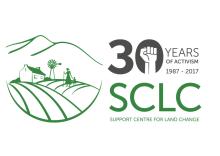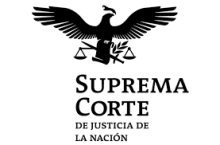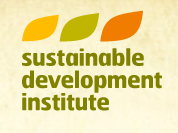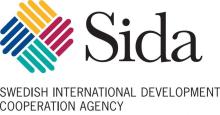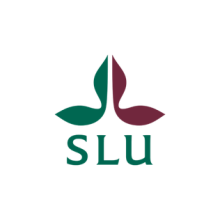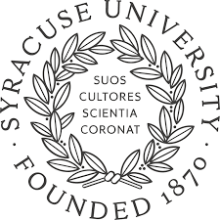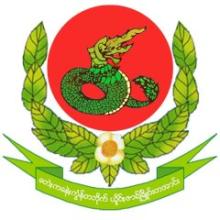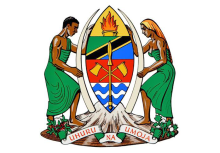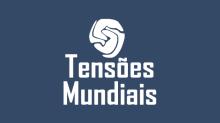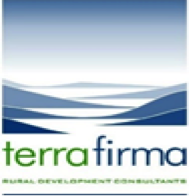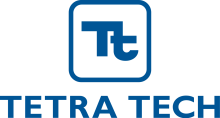The Land Library includes resources from more than 1,900 national and international information providers. Learn more about the organizations and institutions using the Land Portal to share their open-access research, data and stories.
Support Centre for Land Change
SCLC's focus is on labour, tenure and human rights of farm- and forestry workers and dwellers, access to land and resources for small-scale / subsistence farmers and producers, and support and solidarity for communities resisting land development which threatens their homes, livelihoods, health and heritage.
Suprema Corte de Justicia de la Nación (México)
La Suprema Corte de Justicia de la Nación es el Máximo Tribunal Constitucional del país y cabeza del Poder Judicial de la Federación. Tiene entre sus responsabilidades defender el orden establecido por la Constitución Política de los Estados Unidos Mexicanos; mantener el equilibrio entre los distintos Poderes y ámbitos de gobierno, a través de las resoluciones judiciales que emite; además de solucionar, de manera definitiva, asuntos que son de gran importancia para la sociedad. En esa virtud, y toda vez que imparte justicia en el más alto nivel, es decir, el constitucional, no existe en nuestro país autoridad que se encuentre por encima de ella o recurso legal que pueda ejercerse en contra de sus resoluciones.
El edificio sede de la Suprema Corte de Justicia de la Nación se encuentra ubicado en Avenida Pino Suárez número 2, Colonia Centro Histórico, Delegación Cuauhtémoc, C.P. 06065, en la Ciudad de México.
Sin embargo, en el año de 2002, se determinó establecer como sede alterna para el desarrollo de las sesiones del Alto Tribunal, el edificio ubicado en Avenida Revolución número 1508, Colonia Guadalupe Inn, Delegación Álvaro Obregón, C.P. 01020, en la Ciudad de México.
Survey Review
Survey Review (ISSN -0039-6265 (print); ISSN 1752-2706 (online) is an international journal which has been published since 1931, and in recent years under the auspices of the Commonwealth Association of Surveying and Land Economy (CASLE). It has been published continuously as a quarterly journal, bringing together a wide range of papers on research, theory, practice and management in land and engineering surveying. All papers are independently assessed by two referees and come from government, private industry and academic organisations world-wide. Survey Review is included in the Institute of Scientific Information (ISI) index of the most important and influential research conducted throughout the world. It is now published six times a year (starting 2013) in January, March, May, July, September and November, by Taylor & Francis Group on behalf of Survey Review Ltd.
Sustainability
Sustainability (ISSN 2071-1050; CODEN: SUSTDE) is an international, cross-disciplinary, scholarly and open access journal of environmental, cultural, economic, and social sustainability of human beings. Sustainabilityprovides an advanced forum for studies related to sustainability and sustainable development, and is published monthly online by MDPI.
Sustainability is an Open Access journal.
SustainAbility Ltd.
We inform, inspire and guide business leaders to integrate sustainability into the core of their organizations.
To thrive in this era of global interdependence, constrained resources
and rising stakeholder expectations companies must focus on three things:
trust, innovation and leadership.
We help our clients:
— Earn and keep the trust of customers, partners and other stakeholders
— Drive innovation in processes, products, business models and markets
— Lead through an increasingly complex and uncertain future
Sustainable Development Institute
SDI is complrised of grassroots activists using technology to hold the Liberian government & corporations to their commitments.
Swedish International Development Cooperation Agency
Sida is a government agency working on behalf of the Swedish parliament and government, with the mission to reduce poverty in the world. Through our work and in cooperation with others, we contribute to implementing Sweden’s Policy for Global Development (PGU).
We work in order to implement the Swedish development policy that will enable poor people to improve their lives. Another part of our mission is conducting reform cooperation with Eastern Europe, which is financed through a specific appropriation. The third part of our assignment is to distribute humanitarian aid to people in need of assistance.
We carry out enhanced development cooperation with a total of 33 countries in Africa, Asia, Europe and Latin America. Our selection of cooperation countries are based on political decisions made by the Swedish government.
Sida’s mission is to allocate aid and other funding. Our operations are managed by the government’s guidelines, describing the goals for each year’s operations and the size of the development aid budget.
Our staff members and their expertise assist the government with the assessments and the information it needs, in order to decide and implement its development assistance policy. We participate in the advocacy work for Sweden’s prioritised issues within the international development cooperation field, and we are in constant dialogue with other countries and international organisations. Part of our assignment is also to report statistics and disseminate information about our operations.
Our work is financed by tax money and we administer approximately half of Sweden’s total development aid budget. The other part is channelled through the ministry for Foreign Affairs. All our work should be performed in a cost-effective way with a strong focus on results.
Sida has more than 700 employees, located in our three offices in Sweden as well as abroad in our cooperation countries.
Swedish University of Agricultural Sciences
SLU is a university that is broad based both geographically and scientifically.
Science and education for sustainable life
SLU develops the knowledge about how to use natural, biological land and water resources in a sustainable manner.
Education, research and environmental monitoring and assessment are pursued at some thirty locations all over the country. The main campuses are Alnarp, Umeå and Uppsala.
Swiss Agency for Development and Cooperation
The Swiss Agency for Development and Cooperation (SDC) is Switzerland’s international cooperation agency within the Federal Department of Foreign Affairs (FDFA). In operating with other federal offices concerned, SDC is responsible for the overall coordination of development activities and cooperation with Eastern Europe, as well as for the humanitarian aid delivered by the Swiss Confederation.
The goal of development cooperation is that of reducing poverty. It is meant to foster economic self-reliance and state autonomy, to contribute to the improvement of production conditions, to help in finding solutions to environmental problems, and to provide better access to education and basic healthcare services.
swisspeace
swisspeace is a practice-oriented peace research institute. It analyses violent conflicts and develops strategies for their peaceful transformation. swisspeace aims to contribute to the improvement of conflict prevention and conflict transformation by producing innovative research, shaping discourses on international peace policy, developing and applying new peacebuilding tools and methodologies, supporting and advising other peace actors, as well as by providing and facilitating spaces for analysis, discussion, critical reflection and learning.
swisspeace is an associated Institute of the University of Basel and member of the Swiss Academy of Humanities and Social Sciences. Its most important partners and clients are the Swiss Federal Department of Foreign Affairs, the State Secretariat for Education, Research and Innovation, international organizations, think tanks and NGOs.
Syracuse University
Syracuse University (commonly referred to as Syracuse, 'Cuse, or SU) is a private research university in Syracuse, New York, United States. The institution's roots can be traced to the Genesee Wesleyan Seminary (later becoming Genesee College), founded in 1831 by the Methodist Episcopal Church in Lima, New York. After several years of debate over relocating the college to Syracuse, the university was established in 1870, independent of the college. Since 1920, the university has identified itself as nonsectarian, although it maintains a relationship with The United Methodist Church.
The campus is in the University Hill neighborhood of Syracuse, east and southeast of downtown, on one of the larger hills. Its large campus features an eclectic mix of buildings, ranging from nineteenth-century Romanesque Revival structures to contemporary buildings. SU is organized into 13 schools and colleges, with nationally recognized programs in information studies and library science, architecture, communications, business administration, inclusive education and wellness, sport management, public administration, engineering and the College of Arts and Sciences.
Source: Wikipedia (d.d. November 13th 2017)
Ta'ang Student and Youth Organization
In 1963, the Palaung State Liberation Party (PSLP) started to fight for self-determination and equal rights for the Ta'ang (Palaung) people. In 1991, they made a cease-fire with the Burmese regime. However, some PSLP leaders who were dissatisfied did not accept the cease-fire agreement and formed the Palaung State Liberation Front (PSLF) in the Karen area in Manaplaw in 1992.
Some of the PSLF members wanted to support Ta’ang youth, and established the Palaung Students and Youth Organization (PSYO) on the Thai-Burma border in 1993. The name was changed to the Palaung Youth Network Group (PYNG) during the second meeting on 27 December, 1998.
In March 2007, the first Congress of PYNG was successfully held in a liberated area on the Thai-Burma border. The Congress elected 7 Executive Committee members to lead the first Congressional term of PYNG by secret ballot through a democratic voting system.
In December 2008, the second Congress of PYNG changed the name of the organization to Ta'ang Students and Youth Organization (TSYO). While Palaung is a Burmese term, Ta’ang is our own term, in our language. During this Congress, we also changed the structure of our organization from a Coordinator system to a Secretary system. By secret ballot, the Congress elected 7 Executive Committee members to lead the second term of TSYO.
During our third Congress in December 2010, we held elections for Executive Committee and Secretary Positions, and reviewed our departments, programs, and Constitution. After thorough consideration, we expanded our Executive Committee from 9 to 11 members in order to strengthen the leadership of our programs and organization.
Background of the Ta'ang people
- The Ta'ang (Palaung) people are one of the indigenous nationalities within the multi-national Union of Burma, descended from Mon-Khmer.
- The Ta'ang people have their own language and literature, a distinctive traditional culture, their own territory, and a self-sufficient economy.
- When people think about tea in Burma, one community springs to mind: the Ta'ang. Tea is the backbone of the economy and is famous throughout the region as the product of the Ta'ang people.
- The Ta’ang (Palaung) population is over one million, and most lives in the mountains of the northwestern Shan State. But large numbers also live in towns throughout the Southern and Eastern Shan State.
MISSION
TSYO’s mission is to work for peace, justice and equality, to build a democratic country, and to improve the lives of our students, youth, and all Ta’ang people.
GOALS
- To work for peace, and to develop the Ta'ang region.
- To increase the number of Ta'ang youth who can participate as leaders.
- To promote gender equality.
- To end the military dictatorship.
- To build a federal democratic country with national equality and self-determination.
ORGANIZATIONAL OBJECTIVES
·To promote the capacity of Ta'ang students and youth by working on capacity building training.
·To cooperate with democratic organizations, national revolution movements, international youth and women's organizations, and our Ta’ang people for the shared struggle to bring about positive change in Burma.
·To preserve and promote traditional Ta’ang culture and literature.
·To reduce the growth, trade, and use of opium and other drugs in the Ta’ang region.
·To provide education on, and increase public awareness of, health care through peer education in the Ta’ang region.
·To advocate to the international community and alliance groups to reduce human rights violations in the Ta'ang region.
·To protect natural resources and the environment in the Ta’ang region.
·To promote education and to increase the skills and abilities of Ta’ang youth.
·To increase support for our projects and activities from our local communities.
·To work, through awareness raising activities, against the dictatorship and move toward building a peaceful federal democratic state.
Tanzania Natural Resource Forum
The Tanzania Natural Resource Forum seeks to improve governance and accountability in Tanzania’s natural resource sector to achieve more sustainable rural livelihoods and better conservation outcomes. As a member-driven NGO, TNRF works to improve policy and practice for the better, by helping to bridge the gap between:
- People’s local natural resource management needs and practices; and
- National natural resource management priorities, policies, laws and programs
TNRF supports its members by improving communication, sharing information, promoting collaboration and strengthening collective action. TNRF has a growing membership of more than 3,800 people and organizations, supporting professional staff, and a steering committee drawn from the membership.
Vision
To see policy and practice in the natural resource sector changed for the better– through improved governance and accountability.
Mission
To bring about improved natural resource governance in Tanzania by being a demand-driven network of members and partners that helps people to bridge the gap between people’s local natural resource management needs and practices, and national natural resource management priorities, policies, laws and programs.
Tanzania Online
Tanzania Online is a gateway to information on development issues in Tanzania. It is an initiative to address problems faced by Government officials, policy makers, private sector, civil society, donor community, researchers and academicians accessing information on development issues in Tanzania. Initial funding of the initiative was provided by the UN System (through a Swedish Grant) and the Tanzanian Government. ESRF was selected to implement it
The objective of Tanzania online is to provide an interactive facility for easy access to a comprehensive set of documents about development in Tanzania, analytic work about priorities in development and progress towards poverty reduction and other development targets.
Tanzania Online has improved access and exchange of information among and between key government institutions, the public, donor community, private sector, civil society, researchers and academicians. Tanzania Online database includes analytic documents concerning development in Tanzania, work about priorities in development, progress towards poverty reduction and other sector reform developments.
Tanzania Online disseminates its information content in various ways in order to reach various targeted stakeholders. Including;
- Via the Internet at www.tzonline.org, anyone from anywhere in the world with Internet connection can access and download information free.
- Current Awareness list is e-mailed to subscribers every month
- Hard copies and CD Roms are posted to users in the regions upon request
Currently Tanzania Online is supported by UN JP on Capacity Building for Development Management, under one UN initiative and implemented by ESRF.
Tanzania Women Lawyers Association
Tanzania Women Lawyers Association (TAWLA) is an NGO founded in 1989 and officially registered in 1990. The founding members comprised a professional group of women lawyers who felt the need for an organization that could promote an environment guaranteeing equal rights and access to all by focusing on vulnerable and marginalised groups especially women and children. The founding members also recognised the need for women lawyers to foster mutual support for each other in professional advancement and social responsibility. TAWLA has more than 570 members
Tanzanian Ministry of Agriculture Livestock and Fisheries
The vision of the Ministry of Agriculture Livestock and Fisheries Client Service charter is stipulated in the following statement:
Nucleus for providing policy guidance and services to a modernized, commercialized, competitive and effective agriculture and cooperative systems by 2025
Our Mission
To deliver quality agricultural and cooperative services, provide conducive environment to stakeholders, build capacity of local Government Authorities and facilitate the private sector to contribute effectively to sustainable agricultural production, productivity and cooperative development, The MAFC will this by:
- Formulating, coordinating, monitoring and evaluating the implementation of relevant policies in the agricultural sector and monitoring crop regulating institution;
- Collaboration with the private sector, local government and other service providers to provide relevant technical service in research, extension, irrigation, plant protection, crop promotion, land use, mechanization, agricultural inputs, information services and cooperative development;
- Undertaking crop monitoring and early warning, maintaining strategic food reserves and promoting appropriate post harvest technologies, and
- Encouraging, undertaking and coordinating research and development and training.
Tata Institute of Social Sciences
The Tata Institute of Social Sciences (TISS) was established in 1936 as the Sir Dorabji Tata Graduate School of Social Work. In 1944, it was renamed as the Tata Institute of Social Sciences. The year 1964 was an important landmark in the history of the Institute, when it was declared Deemed to be a University under Section 3 of the University Grants Commission Act (UGC), 1956.
Since its inception, the Vision of the TISS has been to be an institution of excellence in higher education that continually responds to changing social realities through the development and application of knowledge, towards creating a people-centred, ecologically sustainable and just society that promotes and protects dignity, equality, social justice and human rights for all.
Vision & Mission
In pursuance of its vision and guiding principles, the Tata Institute of Social Sciences organises teaching programmes to facilitate the development of competent and committed professionals for practice, research and teaching; undertakes research; develops and disseminates knowledge; and reaches out to the larger community through extension, at the local, national, regional and international levels.
Vision of the TISS has been to be an institution of excellence in higher education that continually responds to changing social realities through the development and application of knowledge, towards creating a people-centred, ecologically sustainable and just society that promotes and protects dignity, equality, social justice and human rights for all. The TISS works towards its vision through:
- Creation and provision of socially relevant and high quality professional education in a wide range of inter-disciplinary areas of Social Sciences to a larger number of students from all sections of the society in the country.
- Facilitation of autonomous research and dissemination of knowledge.
- Support knowledge creation through strong M.Phil. and Ph.D. programmes and Post-Doctoral scholars.
- Strategic extension, field action and advocacy through training and capacity building of State and non-State institutions and personnel.
- Initiate field action and advocacy to demonstrate and facilitate creation of policies and programmes.
- Professional response to natural and human-made disasters, through participation in relief and rehabilitation activities.
Tata Trusts
Tata Trusts (comprising Sir Ratan Tata Trust and Allied Trusts, and the Sir Dorabji Tata Trust and Allied Trusts) are amongst India's oldest, non-sectarian philanthropic organisations. The Trusts own two-third of the stock holding of Tata Sons, the apex company of the Tata group of companies. The wealth that accrues from this asset supports an assortment of causes, institutions and individuals in a wide variety of areas. In this manner, the profits that the Tata companies earn go back many times over to the communities they operate in. These funds have been deployed towards a whole range of community development programmes across the country, for over a 100 years now.
Since its inception, Tata Trusts have played a pioneering role in transforming traditional ideas of charity and introducing the concept of philanthropy to make a real difference to communities.Through grant-making, direct implementation and co-partnership strategies, the Trusts support and drive innovation in the areas of healthcare and nutrition; water and sanitation; energy; education; rural livelihoods; natural resource management; urban poverty alleviation; enhancing civil society and governance; media, arts, crafts and culture; and diversified employment. The Trusts engage with competent individuals and government bodies, international agencies and like-minded private sector organisations to nurture a self-sustaining eco-system that collectively works across all these areas.
Taylor & Francis Group
Taylor & Francis Group publishes books for all levels of academic study and professional development, across a wide range of subjects and disciplines.
Taylor & Francis Group publishes quality peer-reviewed journals under the Routledge and Taylor & Francis imprints. The newest part of the group, Cogent OA, offers a purely open access program.
Note from Land Portal:
Taylor & Francis Online contains many publications related to land issues, though mostly at the charge of a fee.
Tebtebba
Tebtebba (Indigenous Peoples’ International Centre for Policy Research and Education) is an indigenous peoples’ organization born out of the need for heightened advocacy to have the rights of indigenous peoples respected, protected and fulfilled worldwide. It also advocates and works on the elaboration and operationalization of indigenous peoples’ sustainable, self-determined development. Tebtebba actively engaged in the processes which led to the adoption of international human rights law and other international instruments, policies and agreements. These include the UN Declaration on the Rights of Indigenous Peoples (UNDRIP) and the establishment of spaces within the United Nations, such as the UN Permanent Forum on Indigenous Issues, among others.
Established in 1996, Tebtebba seeks to promote and disseminate widely indigenous peoples worldviews, their perspectives on key issues such as individual and collective human rights, sustainable development, climate change, biodiversity, traditional knowledge, customary laws and governance, conflict transformation, gender, etc. To gather and consolidate such perspectives, Tebtebba brings representatives of indigenous peoples’ organizations, networks and communities together to elaborate and deepen their views and positions and plan out education and awareness-raising campaigns they can do jointly. These are also venues to further reinforce their capacities to take the lead in policy advocacy and campaigns on all issues affecting them.
Tebtebba, a word used by the indigenous Kankana-ey Igorot of Northern Philippines, refers to a process of collectively discussing issues and presenting diverse views with the aim of reaching agreements, common positions, and concerted actions.
Technical Centre for Agricultural and Rural Co-operation ACP-EU
The Technical Centre for Agricultural and Rural Cooperation (CTA) is an ACP-EU institution working in the field of information for development. We operate under the ACP-EU Cotonou Agreement and our headquarters are in The Netherlands. When it was set up, in 1984, CTA was given the challenging task of improving the flow of information among stakeholders in agricultural and rural development in African, Caribbean and Pacific (ACP) countries.
Our work focuses on three key areas:
- providing information products and services (e.g., publications, question-and-answer services and database services);
- promoting the integrated use of communication channels, old and new, to improve the flow of information (e.g., e-communities, web portals, seminars, and study visits);
- building ACP capacity in information and communication management (ICM), mainly through training and partnerships with ACP bodies.
At the core of all our activities are our partnerships with ACP national and regional bodies. We also work with a wide network of ACP-EU public and private sector bodies, as well as international organisations around the world.
Our overall aim – to better serve the ever-changing information needs of all stakeholders in ACP agricultural and rural development. Through our partners we are working with these stakeholders to achieve the goal shared by the whole development community – poverty alleviation and sustainable development.
Technical University Delft
About TU Delft
TU Delft collaborates with a large number of other educational and research institutes within the Netherlands and abroad and has a reputation for high-quality teaching and research. TU Delft has extensive contacts with governments, trade organisations, consultancies, the industry and small and medium-sized companies.
Vision
The increasing number of people on the planet and their drive to achieve ever-higher levels of prosperity raises some major questions for society. Technology is essential in answering these, as is the underlying scientific knowledge generated and disseminated by modern universities of technology.
The modern university of technology is a source of new scientific understanding and technological breakthroughs. It also trains scientists and engineers, and provides them with a broad academic grounding. As such, it is a catalyst of innovation and economic growth.
With their advanced expertise and know-how, engineers are vital to our society and economy. It is they who develop the science-based technological solutions which enhance many people’s lives.
As one of the world’s leading training grounds for these engineers, TU Delft views its role in society as supplying technological solutions that take us significantly further along the road towards sustainability and a flourishing economy. We position ourselves as an open academic community which, through its scientific personnel and graduates, is represented throughout the academic world and is rooted in our own regional and national, social and economic environment.
Technische Universität München
Profile Land Management Chair – Technical University of Munich, Germany
The Chair of Land Management - http://www.bole.bgu.tum.de/index.php?id=14&L=1 - researches and teaches different aspects and contexts of land management, land administration and spatial (land use) planning. The Chair has a research agenda called ‘Smart and responsible land management’, which has 6 thematic focus areas related to 4 research angles. The thematic focus areas include: integrated land and environmental management, cadastre, land registration and land information systems, rural land development and village renewal, urban land use planning, land consolidation and land valuation and human geodesy. The 4 research angles include: a better understanding of the socio-economic, legal-institutional and organisational context in which land issues are manifested; the development of a comprehensive set of tools, methods and instruments to re-design, re-invent and intervene in the current situation of land issues; the development of multi-disciplinary and transdisciplinary theoretical concepts about land matters; and, the construction and testing of trans-professional methods and tools which can be used effectively and appropriately to solve land related problems.
The chair contributes to a variety of Master and Bachelor programs, including geodesy and geoinformatics, geography, environmental planning, environmental engineering, and, transportation systems. In addition, the Chair has its own international Master program in Land Management and Land Tenure, http://www.landmanagement.bgu.tum.de/index.php?id=96http://www.landmanagement.bgu.tum.de/index.php?id=96 .
The Chair is an active member of the GLTN network. It is currently executing the project Tenure responsive land use planning. In addition, it has contributed to the GLTN’s projects on capacity development assessment strategies for land policy. In the context of German land management, the Chair is executing the project Integrated Land Management, funded by the Bavarian Agency for rural development.
TED
TED is a nonprofit devoted to spreading ideas, usually in the form of short, powerful talks (18 minutes or less). TED began in 1984 as a conference where Technology, Entertainment and Design converged, and today covers almost all topics — from science to business to global issues — in more than 100 languages. Meanwhile, independently run TEDx events help share ideas in communities around the world.
Our Mission: Spread ideas
TED is a global community, welcoming people from every discipline and culture who seek a deeper understanding of the world. We believe passionately in the power of ideas to change attitudes, lives and, ultimately, the world. On TED.com, we're building a clearinghouse of free knowledge from the world's most inspired thinkers — and a community of curious souls to engage with ideas and each other, both online and at TED and TEDx events around the world, all year long.
In fact, everything we do — from our Conferences to our TED Talks to the projects sparked by the TED Prize, from the global TEDx community to the TED-Ed lesson series — is driven by this goal: How can we best spread great ideas?
TED is owned by a nonprofit, nonpartisan foundation. Our agenda is to make great ideas accessible and spark conversation.
Tensões mundiais
A revista Tensões Mundiais é uma publicação quadrimestral do Observatório das Nacionalidades, grupo formado por pesquisadoras e pesquisadores de diversas instituições e áreas do conhecimento. Ela está avaliada pela CAPES com conceito A2 na área de Ciência Política e Relações Internacionais e se vincula ao Programa de Pós-Graduação em Sociologia (PPGS), bem como ao Programa de Pós-graduação em Políticas Públicas (PPPP), ambos da Universidade Estadual do Ceará (UECE).
Terra Brasilis
Terra Brasilis (Nova Série) é uma publicação da Rede Brasileira de História da Geografia e Geografia Histórica, coletivo nacional de pesquisadores interessados na história da geografia, a geografia histórica, a história do pensamento geográfico, a história da cartografia e a história da geografia escolar, com ênfase no Brasil e na América Latina.
Terra de Dereitos
A Terra de Direitos é uma organização de Direitos Humanos que atua na defesa, na promoção e na efetivação de direitos, especialmente os econômicos, sociais, culturais e ambientais (Dhesca).
A organização surgiu em Curitiba (PR), em 2002, para atuar em situações de conflitos coletivos relacionados ao acesso à terra e aos territórios rural e urbano. Atualmente, a Terra de Direitos incide nacional e internacionalmente nas temáticas de direitos humanos e conta com escritórios em Santarém (PA), em Curitiba (PR) e em Brasília (DF).
As ações da organização são desenvolvidas por meio de quatro linhas de atuação: Terra, Território e Justiça Espacial; Política e Cultura dos Direitos Humanos; Biodiversidade e Soberania Alimentar e Democratização da Justiça.
Estratégia de ação
A Terra de Direitos usa a assessoria jurídica popular como estratégia de ação. Assim, desenvolve atividades de formação, atua em litígios estratégicos e na incidência política.
Na advocacia popular, a organização trabalha com demandas coletivas e comunitárias, em parceria com os movimentos sociais populares, reconhecendo-os como sujeitos ativos do processo social e das lutas por direitos.
Desenvolve pareceres, pesquisas e relatórios para subsidiar análises de políticas públicas, legislações e outras estratégias.
Realiza litigância estratégia em direitos humanos, com o objetivo de construir teses e jurisprudências que possam beneficiar as lutas coletivas por direitos no país.
Integra espaços de articulação da sociedade civil – nacionais e internacionais –, além de promover ações para formação, incidência (advocacy) e responsabilização (accountability) em direitos humanos.
Terra Firma
Mozambique based local land service providers and consultants
Territorio Italia
Territorio Italia - Governo del territorio, catasto, mercato immobiliare è una rivista scientifica open access peer-reviewed, edita dall'Agenzia delle Entrate, che intende porsi come ponte tra la ricerca scientifica, che si svolge nel mondo universitario, e la Pubblica Amministrazione, che ha un ruolo di fondamentale importanza nel processo di ammodernamento del Paese.
Territorio Italia è un progetto editoriale nato nel 2011 in seno al processo di rinnovamento e internazionalizzazione della Rivista dell'Agenzia del Territorio - quadrimestrale di informazione tecnico-scientifica, attiva dall'anno 2001. Da allora viene pubblicata semestralmente sia in italiano che in inglese, promuovendo un confronto sul piano della ricerca e delle "best practice" sia a livello nazionale che internazionale, attraverso la pubblicazione di contributi di carattere scientifico dall'elevato contenuto innovativo che coinvolgono molteplici ambiti disciplinari:
- catasto
- gestione del territorio
- analisi e previsione delle dinamiche immobiliari
- mercato immobiliare
- gestione immobiliare
- diritto immobiliare
- pianificazione
- rigenerazione e sviluppo
- osservatori del mercato immobiliare
- economie territoriali
- valutazione
- interoperabilità per le amministrazioni pubbliche
- IT applicata al settore immobiliare
- partnership pubblico-private
- gestione del rischio
- modelli di statistica spaziale
- geostatistica e simulazione spaziale
- sistemi di supporto alle decisioni
- etica immobiliare.
Ogni articolo sottomesso per la pubblicazione sulla rivista è oggetto di referaggio anonimo: i contributi vengono valutati secondo le modalità double blind peer review da esperti indipendenti individuati dal Comitato scientifico, ai quali viene richiesto un giudizio scritto sulla adeguatezza della struttura dell'articolo e dei suoi contenuti. La selezione avviene sulla base della coerenza con gli obiettivi editoriali della rivista, dell'attualità e della rilevanza tecnico-scientifica dei temi trattati e dei risultati presentati.
Il testo completo degli articoli è accessibile liberamente e gratuitamente senza embargo.
Tetra Tech
Tetra Tech, Inc. provides consulting, engineering, program management, and construction management services that address fundamental needs for water, environment, infrastructure, resource management, and energy. Tetra Tech’s services for consulting and engineering projects include applied science, information technology, engineering, design, construction management, and operations and maintenance.

